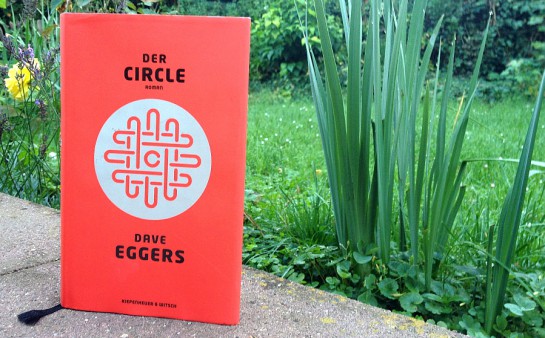

The novel tracks her own integration into the ethos and activities of the Circle, gradually illuminating a deeply disconcerting vision of how real life might soon be chased into hiding by the tyranny of total techno-intrusion. Mae is absurdly grateful for the opportunity to work in this brave new world. Among their inventions is “TruYou”, a single integrated user interface that executes and streamlines every internet interaction and purchase: “One button for the rest of your life online.” Their philosophy is total transparency and their campus is an architectural essay in glass, a temple to all the geek-chic entertainment and amenities that limitless profits can buy. Run by the “Three Wise Men”, the Circle recruits “hundreds of gifted young minds” every week and has been voted “most admired company four years running”. This is the story of Mae Holland, a woman in her early 20s, who secures a job at the vast techno-sexy social media company, the Circle, an approximate combination of Facebook, Google, Twitter, PayPal and every other big online conglomerate to whom we have so far trusted our lives. That is not to say the writing is without formal weaknesses – Eggers misses notes like an enthusiastic jazz pianist, whereas Franzen is all conservatoire meticulousness – but rather to suggest that The Circle is a work so germane to our times that it may well come to be considered as the most on-the-money satirical commentary on the early internet age. The Circle is a deft modern synthesis of Swiftian wit with Orwellian prognostication. Why? Because although Eggers is saying all the same things as Franzen (and so much more), he makes his case not through the often tetchy medium of the essay, but in the glorious, ever resilient and ever engaging form of the novel.


But my guess is that Eggers won’t suffer the same online crucifixion that has subsequently been Franzen’s fate. I cite this because it chimes with the points that Dave Eggers is making in his latest novel, The Circle we are at an interesting moment when two such significant figures of American letters have both independently been so moved to expound on the same subject. “With technoconsumerism,” he wrote, “a humanist rhetoric of ‘empowerment’ and ‘creativity’ and ‘freedom’ and ‘connection’ and ‘democracy’ abets the frank monopolism of the techno-titans the new infernal machine seems increasingly to obey nothing but its own developmental logic, and it’s far more enslavingly addictive, and far more pandering to people’s worst impulses, than newspapers ever were.” I n a recent essay published in these pages, Jonathan Franzen inveighed against what he sees as the glibness and superficiality of the new online culture.


 0 kommentar(er)
0 kommentar(er)
